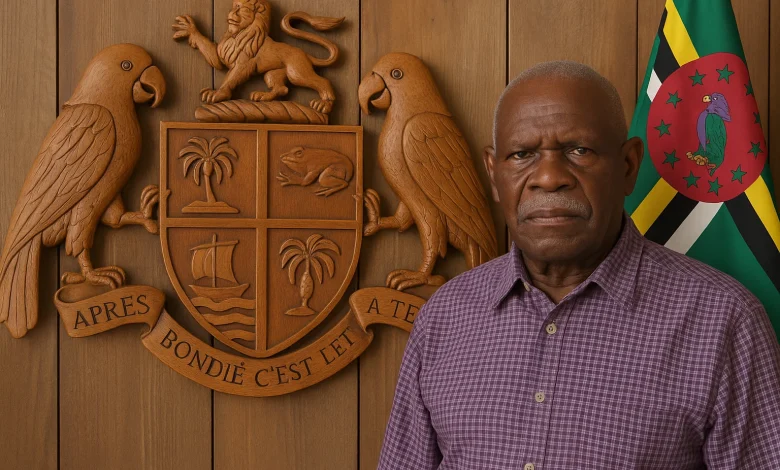Bernard Agar Carbon

Bernard Agar Carbon (February 17, 1931 – July 2017) was a Dominican educator, public servant, and politician aligned with the Dominica Freedom Party (DFP). He served as a Senator and Parliamentary Secretary in the House of Assembly from 1985 to 1990. Carbon was widely respected for his decades-long contributions to education and rural development, particularly through his service as a principal in multiple communities, and for his political commitment during a transformative period in Dominica’s governance.
Early Life and Education of Bernard Agar Carbon
Carbon was born on February 17, 1931, in Woodford Hill, a northeastern village in Dominica known for its farming traditions and close-knit community life. He attended the Dominica Grammar School, where he received his formal secondary education before embarking on a career in teaching. His early professional years began at the Wesley Primary School, a role that placed him at the centre of community development through education.
Recognising the importance of advancing his training, Carbon pursued studies at the Leeward Islands Teachers Training Institute, which shaped his approach to rural pedagogy. He later travelled to the United Kingdom, where he obtained a Bachelor’s degree in Education for Rural Areas. This degree was particularly significant at the time, as it aligned with the needs of Dominica’s rural communities, many of which required innovative strategies to address challenges in access, infrastructure, and resources.
Career in Education
On his return to Dominica, Carbon dedicated his professional life to leadership within the education system. He served as principal of several primary schools, including those in Penville Primary, Bense Primary, Vieille Case Primary, Wills Strathmore Stevens Primary, and Calibishie Primary. His leadership emphasised literacy, community engagement, and the integration of education into broader rural development. Generations of students benefited from his guidance, and his reputation as a strong yet approachable leader followed him across each posting.
His career as an educator deeply influenced his later political life. Carbon’s first-hand understanding of the challenges faced by rural families, whether in education, agriculture, or community infrastructure, would shape the policies and programs he supported in national office.
Political Service and Parliamentary Contributions
Carbon entered national politics under the banner of the Dominica Freedom Party, led by Prime Minister Dame Mary Eugenia Charles, the Caribbean’s first female head of government. On July 22, 1985, he was appointed as a Senator in the House of Assembly, and shortly thereafter, on August 1, 1985, he was named Parliamentary Secretary in the Ministry of Trade, Industry and Tourism.
From 1985 to 1990, he played a role in shaping national debates, particularly on trade and tourism, sectors that were increasingly critical to Dominica’s economic survival and growth during the late 1980s. Although he contested the Wesley Constituency in both 1985 and 1990, he was not elected as a representative. Nevertheless, his senatorial and parliamentary secretary roles gave him a platform to influence government priorities, especially in areas that connected rural development with national policy.
Official Funeral and National Recognition
Bernard Agar Carbon passed away in July 2017. In recognition of his service, the Government of Dominica accorded him an Official Funeral on Tuesday, July 25, 2017. As a mark of respect, the day was declared a national day of mourning, with the Dominica Flag flown at half-staff on all public buildings across the island.
The funeral service was held at the Wesley Catholic Church, with public viewing of the body from 2:00 p.m. to 2:55 p.m., followed by the service at 3:00 p.m. Carbon was later interred at the Wesley Catholic Cemetery. Official mourners were requested to be seated by 2:45 p.m., reflecting the solemnity and structured nature of the state’s tribute.
Dignitaries present at the funeral included His Excellency Charles Savarin, President of Dominica, and Prime Minister Roosevelt Skerrit, along with cabinet ministers, the House of Assembly, and other government officials. Their attendance highlighted Carbon’s legacy not only as an educator but also as a respected public servant.
Legacy
The Dominica Freedom Party described him as a “noble citizen” who gave much to his district, community, and country. He left behind a reputation as a dedicated educator, an agriculturalist with strong ties to rural communities, and a principled politician. His impact is particularly remembered in the northeast of Dominica, where his teaching and leadership roles shaped both education and community life for decades.
Carbon’s legacy endures in the generations he taught and in the example he set as a teacher-turned-politician who viewed public service as a lifelong responsibility. His life reflected the path of many Dominicans of his generation: deeply rooted in community, committed to education, and willing to serve at the highest levels of government when called.




